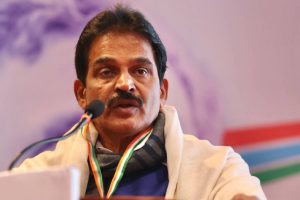The Supreme Court of India is a constitutional court and not a centre for arbitration. Its order to constitute a four-member committee to negotiate with the protesting farmers to resolve the deadlock between the government and the farmers protesting over the three controversial laws is thus controversial.
A suggestion of senior lawyer Dushyant Dave appearing for a farmers group to include former CJI RM Lodha in the four-member committee was ignored by the Supreme Court.
When the court was toying with the idea of a committee, CJI SA Bobde said it could include experts like Magsaysay award winner P Sainath, hinting that the panel would be balanced. All the four members the court selected had expressed in public their support to implement the three contentious laws.
One of the members, Bhupinder Singh Mann, national president of the Bhartiya Kisan Union, has already recused himself from the committee “in view of the prevailing sentiments and apprehensions amongst the farm unions” and promised to stand always with the farmers and Punjab.
For mediation to succeed, the mediators’ neutrality should be above suspicion. Farmers did not approach the apex court for mediation but to challenge the legality of the impugned laws.
The affidavit the government filed in the SC says the Centre has been “actively and intensively engaging with the States for about two decades to achieve the reforms,” and that the legislations were “not hurriedly made but are a result of two decades of deliberations.”
Among other things, Draft Model Acts were circulated in 2003 and 2017, the affidavit claimed. To claim that a Model Act for a Bill introduced in 2020 was circulated in 2003 is to challenge credulity.
Instead of wading into uncharted territory, the SC should turn its attention to the constitutional validity of the three disputed laws. They were challenged mainly on two grounds: first, Parliament has no competence to enact these laws as the subject comes under the State List and, second, the manner in which it was ‘passed’ in the Rajya Sabha.
It was not in accordance with Articles 100 and 107 of the Constitution and rules of the House. Article 100 stipulates that all questions at any sitting of either House or joint sitting of the Houses shall be determined by a majority of votes of the members present and voting. Majority can be determined only by recording of votes even if one member demands division.
It is common knowledge the three Bills were passed in the Rajya Sabha by voice vote amidst persistent demand by opposition members for division. The Deputy Chairman of the House who was conducting the proceedings was in a hurry to declare them passed without recording of votes. According to Article 107, a Bill shall not be deemed to have been passed unless both Houses agreed to it.
Normally, the President would examine the legality and validity of a Bill before giving his assent. In this case, the President gave his assent to the three Bills the same day it was presented to him and they became law.










